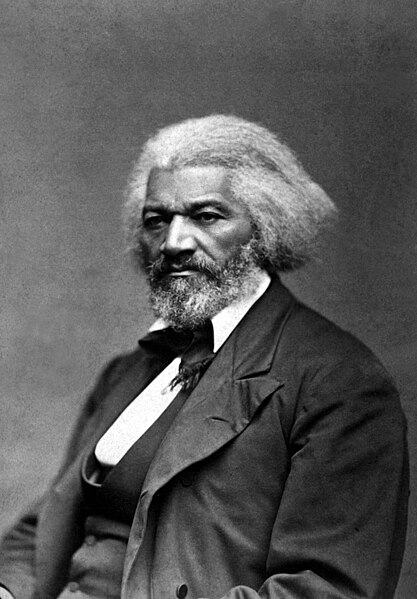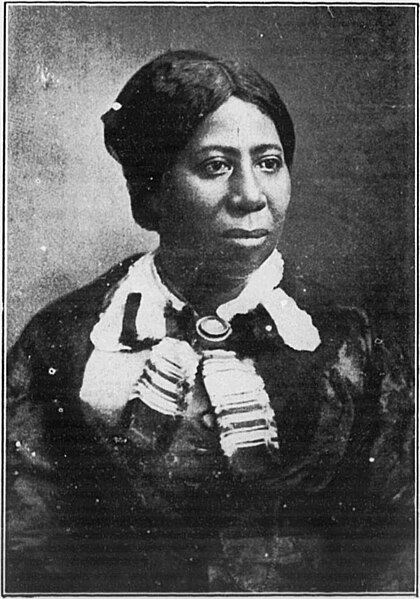Frederick Douglass was an American social reformer, abolitionist, orator, writer, and statesman. He became the most important leader of the movement for African-American civil rights in the 19th century.
Douglass in 1879
Anna Murray Douglass, Douglass's wife for 44 years, portrait c. 1860
Frederick Douglass, c. 1840s, in his 20s
The home and meetinghouse of the Johnsons, where Douglass and his wife lived in New Bedford, Massachusetts
Reformism is a type of social movement that aims to bring a social or also a political system closer to the community's ideal. A reform movement is distinguished from more radical social movements such as revolutionary movements which reject those old ideals, in that the ideas are often grounded in liberalism, although they may be rooted in socialist or religious concepts. Some rely on personal transformation; others rely on small collectives, such as Mahatma Gandhi's spinning wheel and the self-sustaining village economy, as a mode of social change. Reactionary movements, which can arise against any of these, attempt to put things back the way they were before any successes the new reform movement(s) enjoyed, or to prevent any such successes.
Chartist meeting, Kennington Common, 1848
Mary Wollstonecraft
A Vindication of the Rights of Woman, 1792
Charles Grey, 2nd Earl Grey Monument in Newcastle upon Tyne








